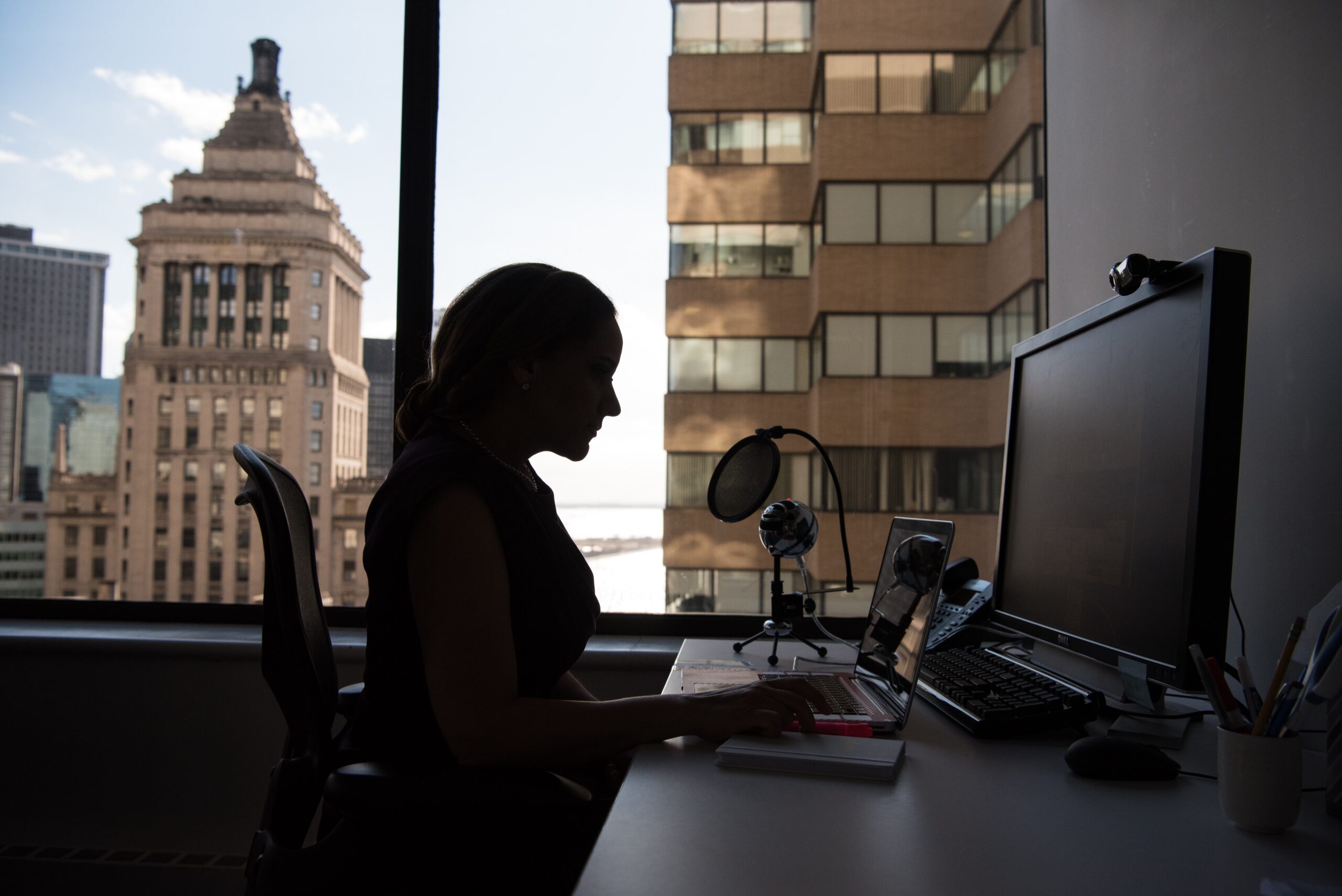Content warning: This article briefly mentions experiences with inappropriate sexual advances.
Ravneet Kaur had been in Canada for just two weeks last September, when she experienced one of the scariest episodes of her life.
Walking from her home in Brampton to the bus stop at 7 am, a strange man followed her, trailing her in his car, then driving ahead and pulling a U-turn and getting out of his vehicle.
“He kept saying something to me which I did not understand. I was terrified and began screaming for help and crying. He quickly got into his car and sped off.”
Kaur called a friend who picked her up. Shaken by her experience, all Kaur could think about at that moment was going back to India to her family.
More challenges came her way in the following months: Kaur says her employers underpaid her and the agency through which she had secured employment started ignoring her calls and messages.
A large chunk of her and her husband’s salary was spent on rent and the young couple had next to nothing for groceries and daily expenses. They even had to borrow money from a friend to make rent.
It was not what they expected to experience in Canada.
“I had a really good life, you know in my city in Punjab, there’s a family business so we had a good lifestyle. I was treated like a queen, like a daughter, by my in-laws. I thought I probably made the worst decision of my life by immigrating here,” Kaur says.
But Kaur’s husband kept motivating her to keep at it; getting their licenses (trucking for him, nursing for her), applying for jobs and keeping a positive outlook. “We spent way too much to get to Canada, we [couldn’t] just go back without having something to show for it,” says Kaur, who studied Gerontology at St. Clair College.
Harassment of female international students
Kaur is part of a surge of international students in Canada in the past year with Immigration, Refugees and Citizenship Canada issuing 551,405 new study permits in 2022, an increase of 24 per cent in 2021. Forty-one per cent of these students are from India. In Ontario’s Peel region, much of the international student community, like Kaur, is from the state of Punjab.
Stories of exploitation and abuse came into sharp focus over the course of the pandemic with international students, unable to return home, struggling to find information about vaccinations, being threatened with eviction by unscrupulous landlords, living in cramped housing and being plagued by a spate of mental health issues.

Manvir Bhangu, founder of Brampton-based non-profit Laadliyan, said she was appalled at how students, especially female students, were being taken advantage of by the community.
“It was heartbreaking,” Bhangu said. “One time we had a call from a student who was afraid that her landlord was going to kick her out because she couldn’t afford rent as she had lost her job.
“We are by no means an emergency hotline or a 24/7 crisis support line but we rallied together as a team and put together $500 and sent it to her. She needed that money to stay the night or else she would be homeless,” Bhangu added.
Over the past year, the team at Laadliyan has been working on a project called Building Equitable Workplaces for Women International Students.
Through this project, Laadliyan’s team identified the obstacles and barriers that women international students encounter in the workplace. (Laadliyan is a Punjabi term of endearment which means beloved.)
Funded by the WES Mariam Assefa Fund in partnership with the Tamarack Institute, the project engaged with 33 female international students in the Peel region.
The goal was to gain a better understanding of their workplace experiences from their perspective.
Some of the experiences shared anonymously by the young women were horrifying. One participant spoke about how she was asked by her employer if she was happy with her husband “in bed,” another spoke about how she had utensils thrown at her.
Failure to pay wages, being cheated of money by immigration lawyers and agents, being overworked and underpaid were just some of the challenges the women faced, the Laadliyan team discovered.
Kaur, who contributed to the interim Laadliyan report, has decided to speak publicly about her experiences.
“I’d get ready for my early morning shift, take the bus and travel quite a distance to get to my job only to be told that the shift was canceled. All that money spent on transit would be wasted and I’d earn nothing at the end of the day. In my very first job, I was underpaid and when I followed up, the agent stopped taking my calls and messages,” says Kaur, who is now employed as a personal support worker and says it’s been smooth sailing so far.
A full report will be released by the organization, likely next week. In the meantime, the team is working on next steps, which includes designing training modules for small and mid-sized companies on ways to support their international student workforce.
Laadliyan is also working with academic institutions to train them to identify signs of exhaustion and exploitation among their female international students and to provide educational seminars to their students on safety, sexual and mental health.
“We got very lucky that we had these young women speak up about their experiences,” Bhangu says
“A lot of them don’t have networks and families and friends that they know that they can lean on. They are afraid to report these incidents because they’ve been falsely told by employers or landlords that they might jeopardize their permanent residence application process in doing so. They are youngsters who are figuring their lives out in a new country, most of them having ventured out of their homes for the first time. They need more resources and support to achieve work and academic balance,” Bhangu concluded.
**New Canadian Media has replaced an image of Ravneet Kaur at her request with an illustrative stock image. Although Kaur originally consented to the use of her photo, she withdrew it after the photo was originally published.
Baisakhi Roy is a writer and journalist based in Oakville. Her work has been published in several Canadian media outlets including The Globe and Mail, Huffington Post Canada, Chatelaine, Broadview and CBC. Her areas of interest and expertise lie in the intersections of immigrant life and culture in Canada. She is an avid Bollywood fan and co-hosts the Hindi language podcast KhabardaarPodcast.com.





